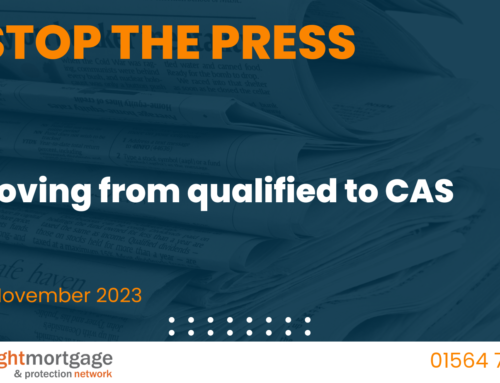BY: Doug Hall, Director, 3mc
________________________________________________________________________
I seem to have spent a lot of time speaking at industry roadshows, forums and seminars recently and one of the issues that’s been popping-up with greater regularity is that of limited company buy-to-lets.
The new tax rules mean that buying a buy-to-let within a limited company is now far more popular. For example, 24% of all the buy-to-let business processed by 3mc last year was done via a limited company. In the first couple of months of 2017, that figure has shot-up to 36% and I wouldn’t be surprised if it continues to rise in the months to come.
A question regularly put to me about limited company buy-to-let is how long a company has to have been trading for in order to satisfy lenders’ requirements. The answer is that the company can be brand new. It’s easy enough to set-up a new limited company; they can be bought ‘off-the-shelf’ and that’s perfectly acceptable to most lenders. The key point is that a limited company is simply a tax wrapper; the lender will underwrite the company’s directors rather than being concerned about the trading record of the company itself.
Some brokers also expressed concern about offering clients tax advice. It’s a fair concern and the simple answer is that investors should seek advice from a specialist property accountant. If you haven’t already done so, it may be worth forging a link with a local accountant who can help your clients. From a broker’s perspective, I suggest the important issue is to give clients comparative information for both individual and limited company buy-to-let deals. Borrowers can then consult with their accountant and make an informed decision as to which deal is best for them, given their circumstances. Do bear in mind that it’s no longer a case of opting for the cheapest rate. For example, it may be that a 3.5% deal for a limited company may be a better option than a 2% deal for an individual, when all factors are taken into consideration, especially the impact of taxation.
The Mortgage Works has a very useful tax change calculator which is a free download on its website, which will help any landlord better understand the implication of the tax changes. The first tax bill that includes the effects of the new tax changes won’t be due for payment until January 2019. There’s a lot of buy-to-let deals that will be written over the next 2 years and borrowers need to understand now what the effects of the changes are going to be.
Specialist lenders continue to cut rates
We’ve seen a lot of buy-to-let and residential rate cuts being made by specialist lenders during the past few weeks. Here’s a brief summary of some of the more notable announcements:
Pepper Homeloans – has strengthened its residential range by cutting most of its existing rates and adding new 30-month, 3-year and 5-year fixed rate deals. On its buy-to-let range it has launched 2-year fixes starting from 3.38% and 5-year fixes starting from 4.18% and has cut some existing rates by up to 0.5%.
Precise Mortgages – has launched limited edition buy-to-let 5-year fixes starting from 3.39%, which make them the cheapest 5-year BTL deals it currently has on offer.
Kensington – has launched exclusive 90% LTV residential 2,3 & 5 year fixes starting from 4.34% and has also announced buy-to-let 2 & 3-year fixes on HMOs and multi unit freehold blocks with rates starting from 3.34%.
Kent Reliance – has launched 2 and 3-year BTL deals starting from 2.99%. They have also reduced 5-year fixed rates and will lend to limited companies and on HMOs.
Vida Homeloans – has reduced 2-year tracker and 5-yr fixes by up to 0.95% and 2-yr fixes have been cut by up to 1.15%, starting from just 3.59%. Fees have also been cut by £500 for loans up to £250K and by 0.25% for deals above £250K.
Shawbrook Bank – has introduced a new ‘HMO Hybrid’ valuation fee scale and ‘HMO Hybrid’ valuation report option, suitable for small HMOs up to 6 beds on properties up to £1m.
Aldermore – has launched 2-yr fixes for limited company buy-to-lets starting from 4.48% to 75% LTV. In addition, existing standard 2-yr fixes have been cut by 0.1%.
Despite much scaremongering that the buy-to-let market may be going into meltdown, the truth is it’s moving into another phase of development. The choices on offer to landlords are more complex and personal circumstances, especially their tax situation, will make a bigger difference to the way they decide to invest in property in the future. But many landlords will continue to invest, which is why it’s so important they fully understand the options available to them.
| Best Buys: Limited Company for a single self-contained unit | ||||
| Lender | Term and Rate* | Product LTV | Fee** | Minimum rental stress calculation |
| Paragon Premier | 3.65% 5 Year Fixed Rate
| 65% | £995 | 125% @ 4% |
| Kent Reliance | 2.99% 2Yr Discounted Variable | 65% | 1.5% | 125% @ 5.5% |
| Foundation Homeloans – Packager Exclusive | 3.49% 5 Year Fixed Rate | 75% | 2% | 125% @ 3.49% |
| Precise Mortgages | 3.39% 5 Year Fixed Rate | 75% | 2.5% | 125% @ 3.39% |
| Axis Bank | 3.95% 5 Year Fixed Rate | 75% | 1.5% | 125% @ 3.95% |
| Vida Homeloans | 3.49% 2Yr Variable | 70% | Up to £250k – £1,495 Over £250k – 1.25% | 125% @ 5.5% |
| Aldermore Bank | 3.98% 2Yr Fixed Rate | 75% | 2% | 110% @ 5.98% |
| Fleet Mortgages | 3.60% 2Yr Fixed Rate | 75% | 1.5% | 125% @ 5% |
* Rates correct as at 28/02/17. **Lender arrangement fee only. Other fees may apply





